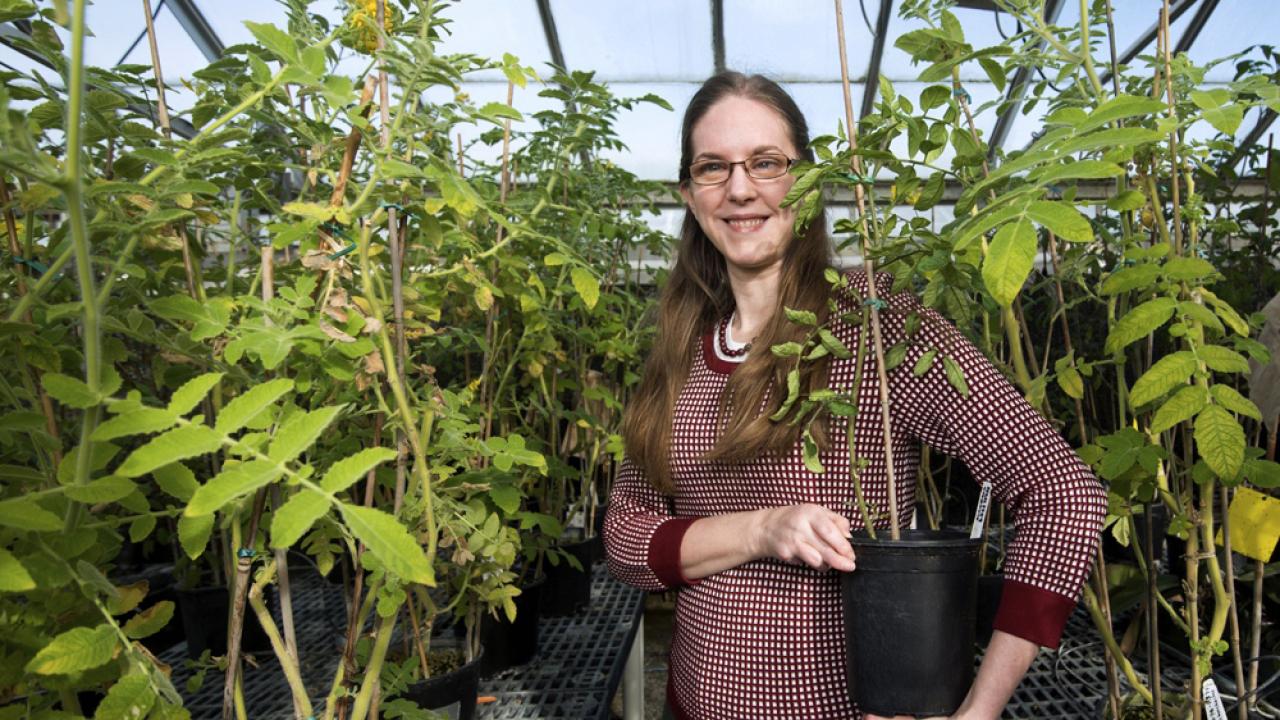
Erin Arms
What matters to Erin?
Quick Summary
- Fostering opportunities for interdisciplinary engagement and collaboration.
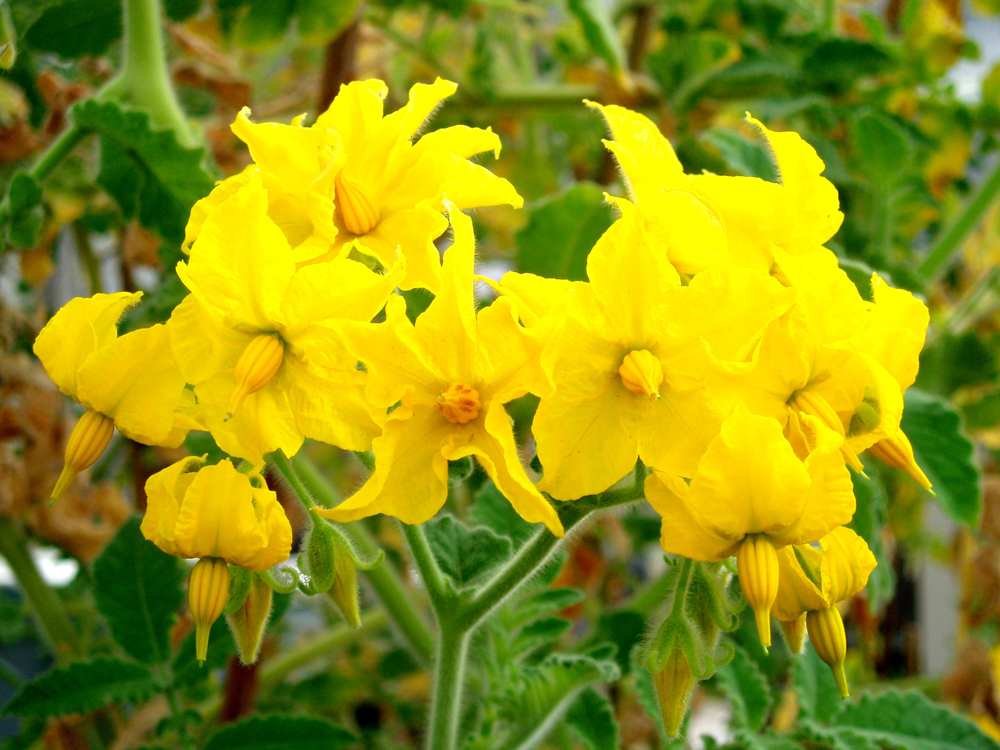
Erin Arms is a Ph.D. candidate in Integrative Genetics and Genomics whose work will not only yield a dissertation of her own (“Chromosome 9 in tomato: Identification, characterization, and transcriptomics of QTL associated with water stress tolerance traits”) but also has the potential to contribute to the improvement of cultivated tomato’s ability to tolerate higher temperatures and decreased irrigation associated with the effects of climate change and decreased agricultural input. In light of recent environmental concerns, especially in light of California’s ongoing drought, Arms’ and her colleagues’ work is especially significant at a time when research in multiple fields is desperately needed to address future climate concerns, particularly at the intersection of climate and agriculture.
Arms completed her undergraduate degrees in biochemistry and anthropology, minoring in German language and literature at the University of Washington. After working abroad for a year and a half in Muenster, Germany studying avian phylogenetics, she decided to switch gears and study plants. Arriving in Davis in 2009, she began research in the St. Clair lab, run by Professor Dina St. Clair from the Department of Plant Sciences, in 2010. Her dissertation work has required the ability to collaborate with colleagues from a range of different fields. This experience has helped her realize that perspectives on how the nature of research projects are viewed need to be broadened.
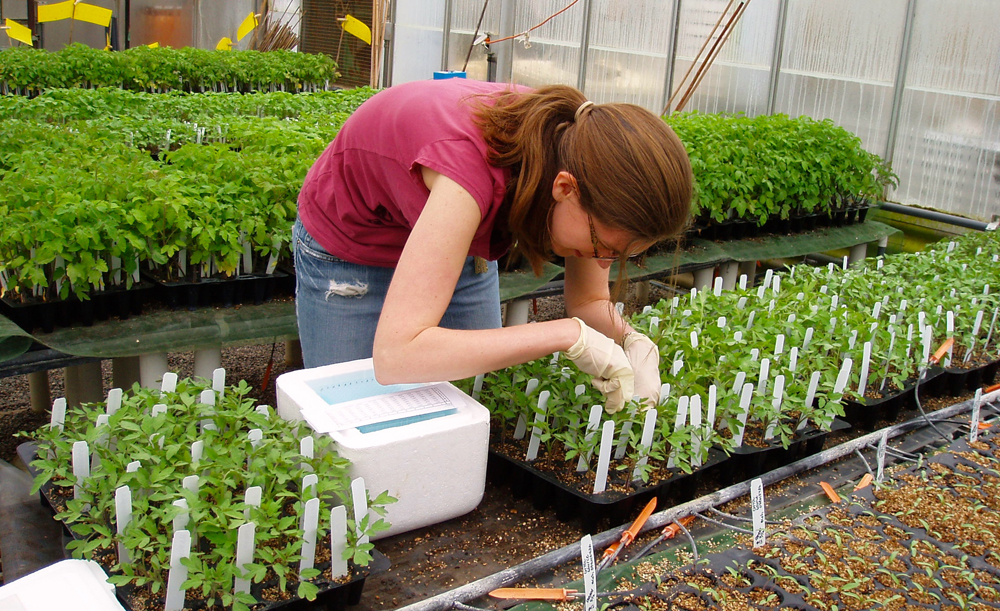
"The interdisciplinary nature of [my research] is surprising — genetics, bioinformatics, agronomy, horticulture and plant physiology — [people] don’t realize how many different subjects go into a successful...project." Through her experience working with researchers and experts in many different fields, she decided to explore what other settings could benefit from interdisciplinary collaborations. Arms, who expects to graduate this summer, is now interested in working in science and public policy. "One of the areas that can really benefit from the participation and collaboration of Ph.D. level scientists, social scientists, and humanists, is public policy — especially science policy. If legislators don’t have a science background, it can be difficult for them to understand the nature of issues that are heavily influenced by science and technology. It’s important to have someone with a science background available to better inform decision makers when it comes to science topics in policy."
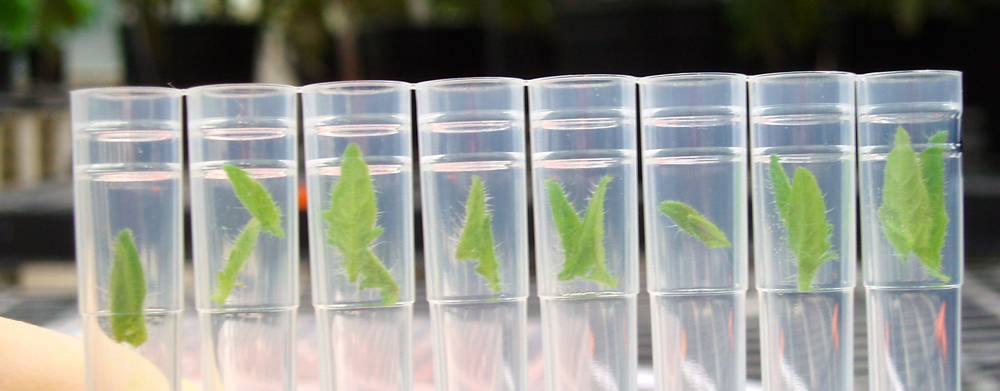
In 2014, she teamed up with Amandeep Kaur, current Chancellor’s Science Fellow, and Matt Robbins, a PhD candidate in Ecology, to present a panel on "Leveraging Your Academic Training for a Career in Science/Public Policy and Advising" at the Interdisciplinary Graduate & Professional Student Symposium (IGPS). "The interdisciplinary nature of the IGPS program gives students the chance to explore areas they thought were beyond their reach or that are different from their course of study. For students who are actively developing or changing their career goals, it can be really helpful for them to hear about the experiences of others that will put them on the right path — IGPS is a forum for that." As a scientist who found herself in that very position, Arms is intent on doing what inspires her the most and encouraging others to explore and shape their goals.
"It’s important for me to work on [projects] where I can clearly see how that project connects to, and is going to potentially benefit people," Arms says. "We are facing a lot of challenges…and we need to look at things from multiple angles. Everybody has input that could be important, and you don’t know what’s going to be the magic thing that brings people together or lead to a solution if you don’t go out and work with people."
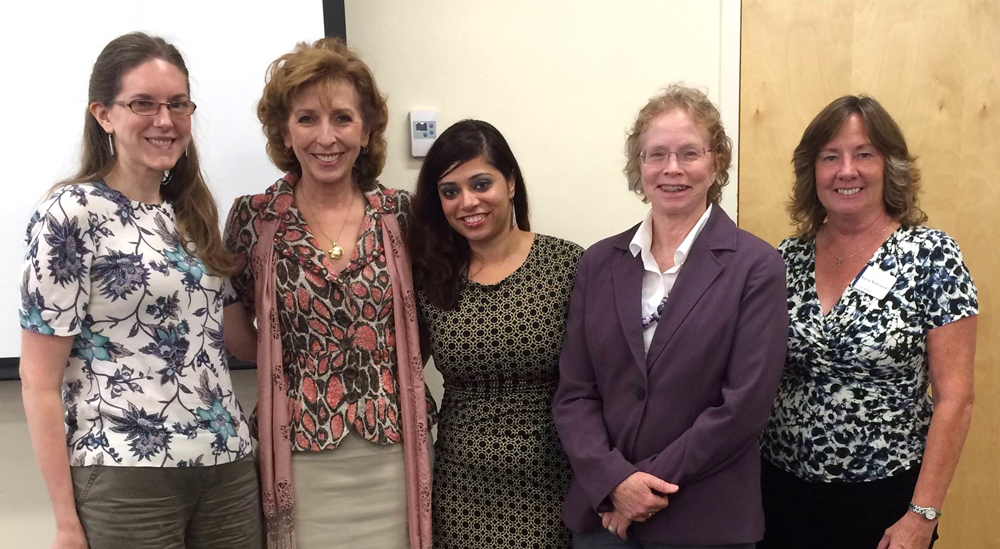
Since her arrival in Davis, Arms has jumped into leadership and community projects. As a member of the Chancellor’s Graduate and Professional Student Advisory Board, Arms currently serves on the Professional Development and Education committee – with a focus on STEM, as well as the Graduate Student Family Concerns committee, helping to identify the needs and concerns of non-traditional students. She is also the co-founder of Empowering Women in STEM (EWIS). Arms is the recipient of multiple awards and scholarships — more recently the Ben A. Madson Scholarship and Knowles Scholarship for Plant Sciences.
In between working in the lab and engaging in academia and the community, Arms volunteers at the Explorit Science Center in Davis as an assistant science educator, the UC Davis Policy Institute as a science communicator, and enjoys time at home with her husband and infant son.
